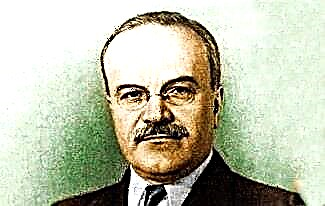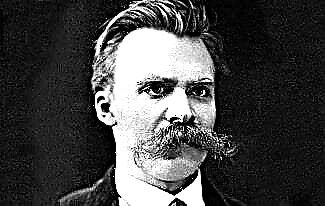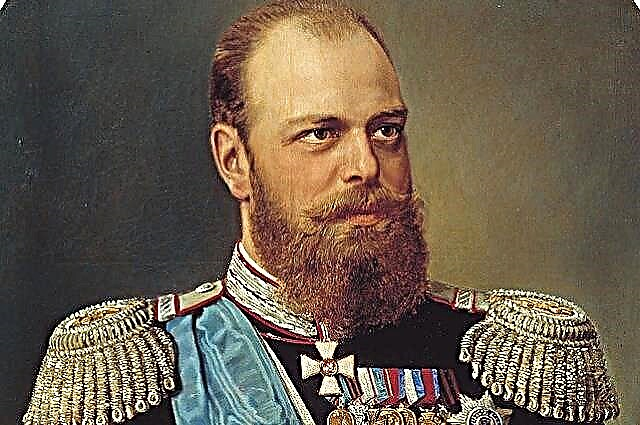Aurelius Augustine Ipponian, also known as Blessed Augustine - Christian theologian and philosopher, an outstanding preacher, bishop of Hippo and one of the Fathers of the Christian Church. He is a saint in the Catholic, Orthodox and Lutheran churches.
In the biography of Aurelius Augustine, there are many interesting facts related to theology and philosophy.
So, here is a short biography of Augustine.

Biography of Aurelius Augustine
Aurelius Augustine was born on November 13, 354 in the small town of Tagast (Roman Empire).
He grew up and was brought up in the family of the official Patricia, who was a small landowner. Curiously, Augustine's father was pagan, while his mother, Monica, was a devout Christian.
Mom did everything possible to instill Christianity in her son, as well as give him a good education. She was a very virtuous woman, striving for a righteous life.
Perhaps it was thanks to this that her husband Patricius, shortly before his death, converted to Christianity and was baptized. In addition to Aurelius, two more children were born in this family.
Childhood and youth
As a teenager, Aurelius Augustine was fond of Latin literature. After graduating from the local school, he went to Madhavra to continue his studies.
During this period of his biography, Augustine read the famous "Aeneid" by Virgil.
Soon, thanks to Romanin, a family friend, he managed to leave for Carthage, where he studied the art of rhetoric for 3 years.

At the age of 17, Aurelius Augustine began caring for a young girl. Soon they began to cohabit together, but their marriage was not officially registered.
This was due to the fact that the girl belonged to a lower class, so she could not expect to become Augustine's wife. However, the couple lived together for about 13 years. In this union, they had a boy Adeodat.
Philosophy and creativity
Over the years of his biography, Aurelius Augustine published many books in which he described his own philosophical concepts and interpretations of various Christian teachings.
The main works of Augustine are "Confession" and "On the City of God". An interesting fact is that the philosopher came to Christianity through Manichaeism, skepticism and neo-Platonism.
Aurelius was greatly impressed by the teaching about the Fall and the grace of God. He defended the dogma of predestination, stating that God originally defined for man bliss or damnation. However, the Creator did it according to his foresight of human freedom of choice.
According to Augustine, the entire material world was created by God, including man. In his works, the thinker outlined the main goals and methods of salvation from evil, which made him one of the brightest representatives of patristism.

Aurelius Augustine paid great attention to the state structure, proving the superiority of theocracy over secular power.
Also, the man divided wars into just and unjust. As a result, Augustine's biographers distinguish 3 main stages of his work:
- Philosophical works.
- Religious and church teachings.
- Questions of the origin of the world and the problems of eschatology.
Reasoning about time, Augustine comes to the conclusion that neither the past nor the future have real existence, but only the present. This is reflected in the following:
- the past is only a memory;
- the present is nothing but contemplation;
- the future is expectation or hope.
The philosopher had a strong influence on the dogmatic side of Christianity. He developed the doctrine of the Trinity, in which the Holy Spirit serves as a connecting principle between the Father and the Son, which is within the framework of the Catholic doctrine and contradicts Orthodox theology.
Last years and death
Aurelius Augustine was baptized in 387 with his son Adeodatus. After that, he sold all his property, and distributed the proceeds to the poor.
Soon Augustine returned to Africa, where he founded a monastic community. Then the thinker was promoted to presbyter, and later to bishop. According to some sources, this happened in 395.
Aurelius Augustine died on August 28, 430 at the age of 75. He died during the vandal siege of the city of Hippo.
Subsequently, the remains of St. Augustine were bought by the king of the Lombards named Liutprand, who ordered to bury them in the church of St. Peter.
Photo by Aurelius Augustine














